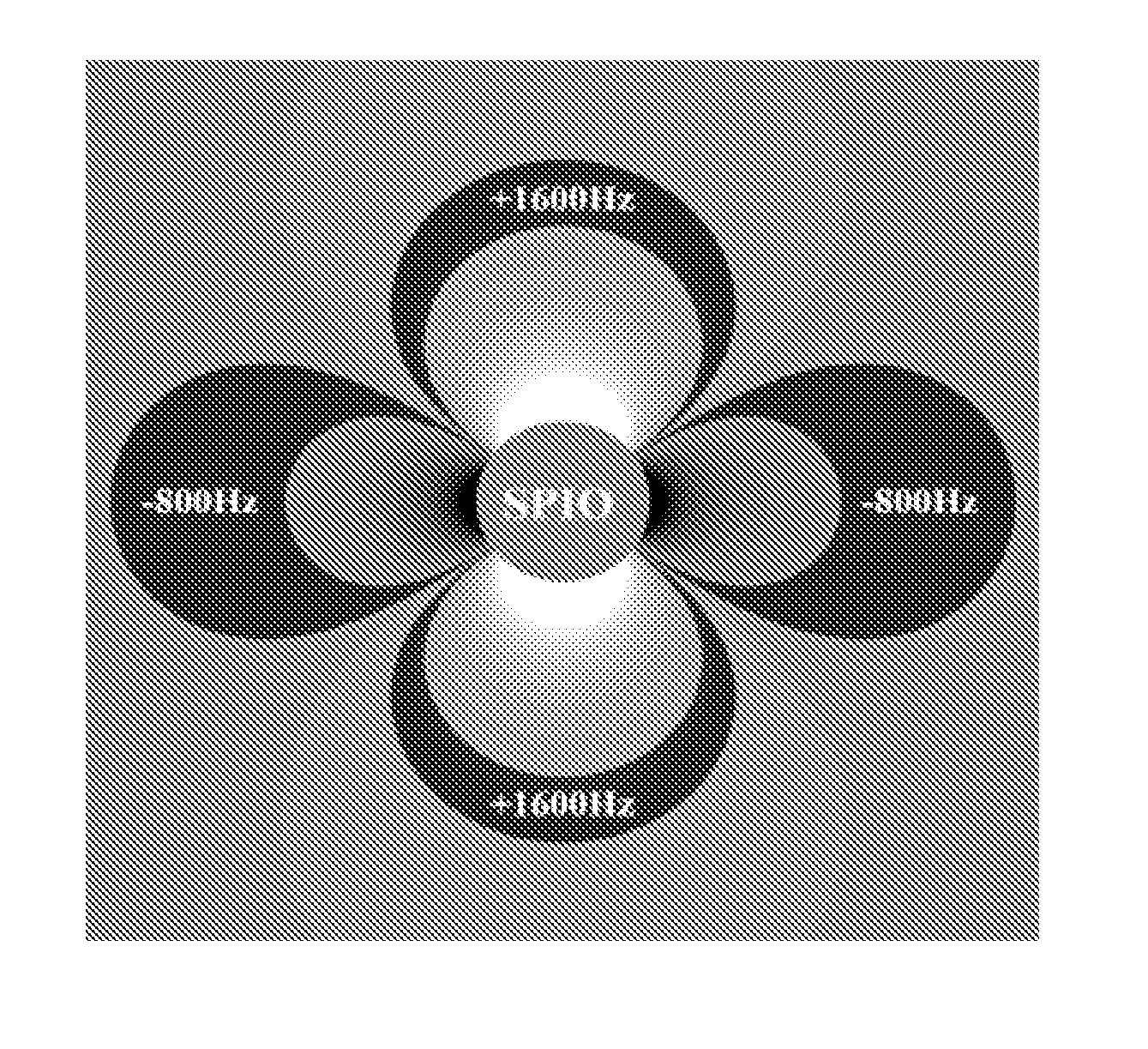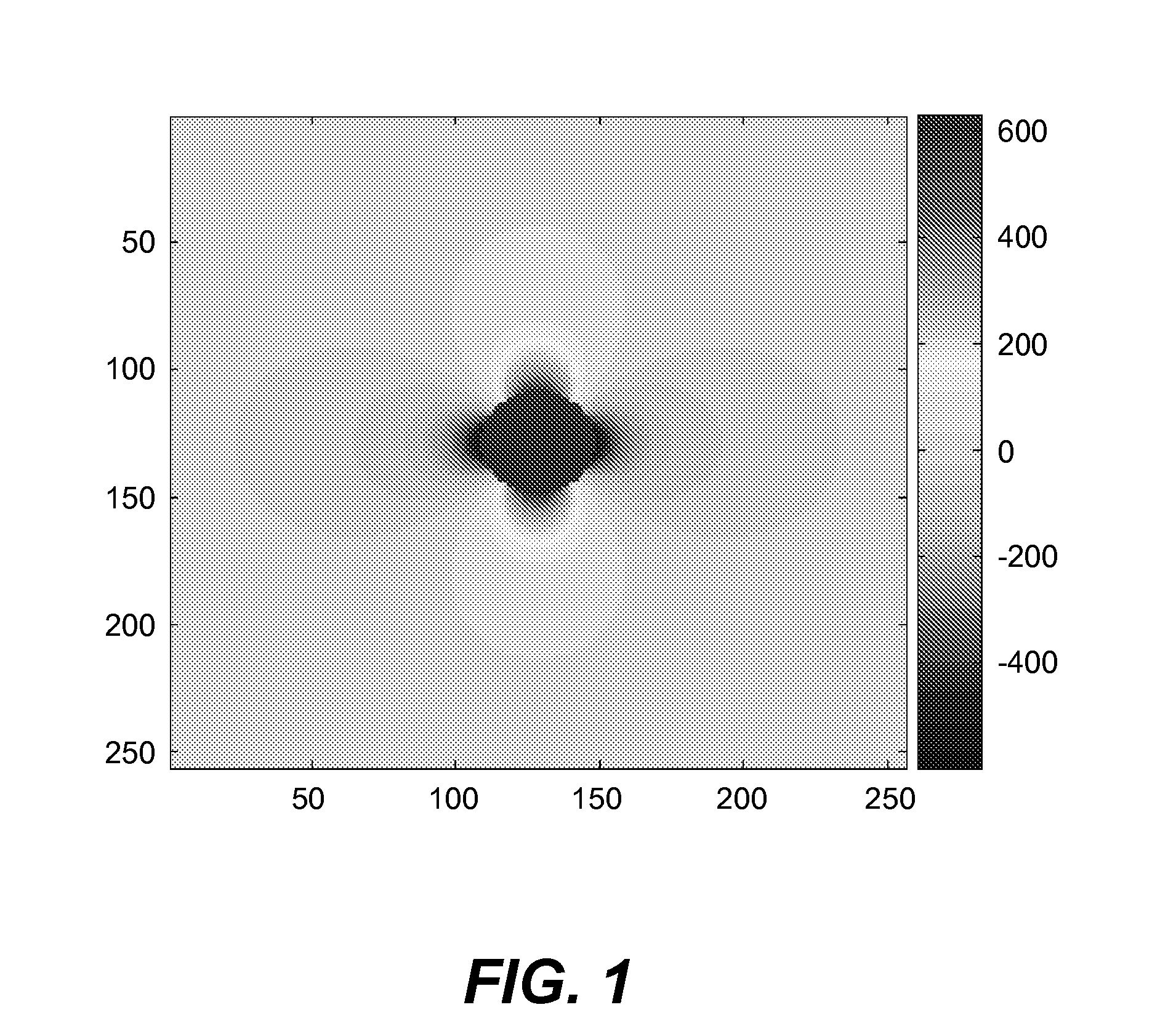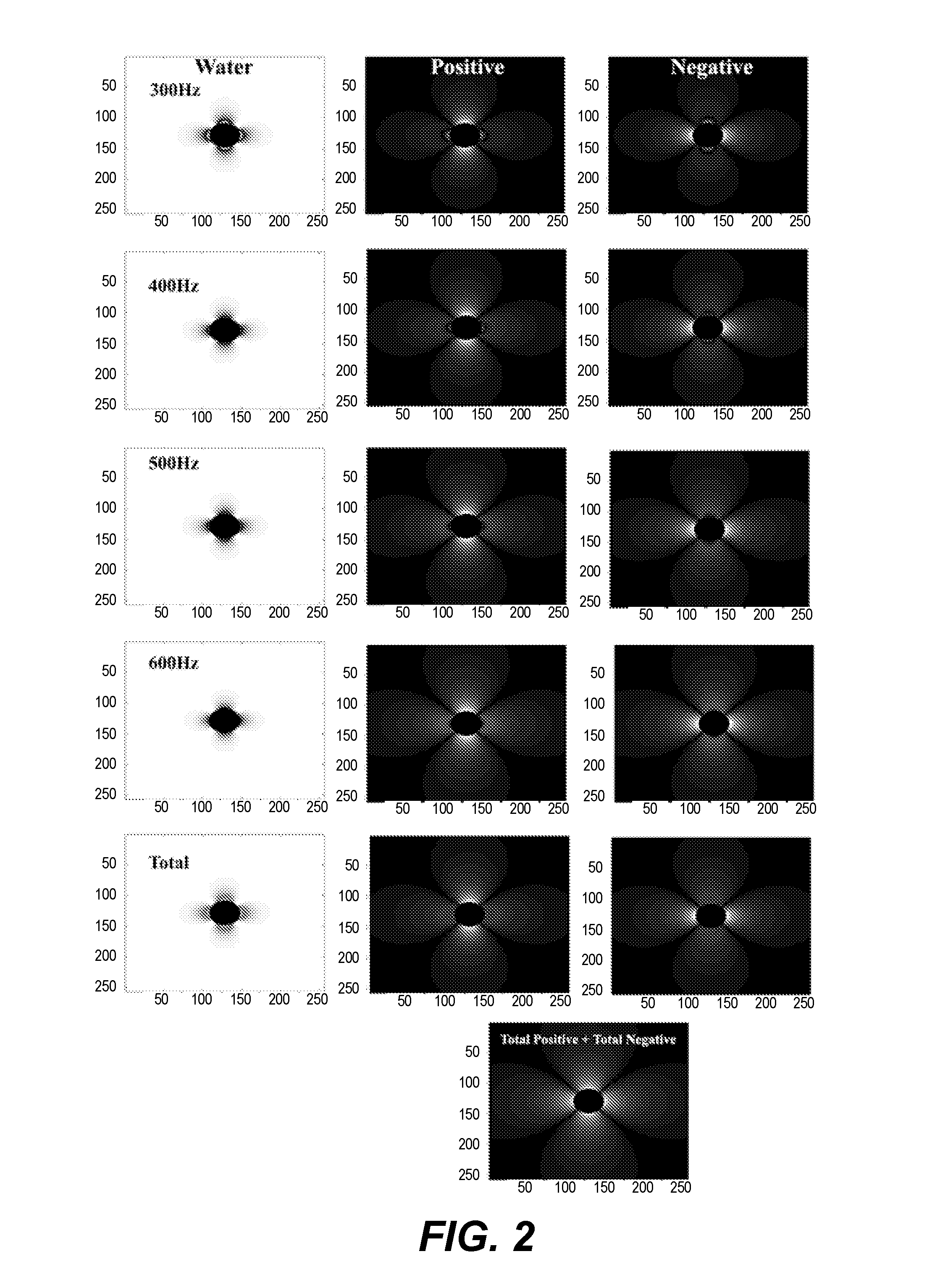Positive contrast MRI using positive and negative field inhomogeneity
- Summary
- Abstract
- Description
- Claims
- Application Information
AI Technical Summary
Benefits of technology
Problems solved by technology
Method used
Image
Examples
Embodiment Construction
[0015] In accordance with the invention, the acquisition of multiple images at slightly different time echo time shifts, will allow the separation of on-resonance spins from off-resonance spins by encoding this information in the received signal. The excitation pulse can be a standard broadband excitation that will excite all spins. The separation of on- and off-resonance spins is then performed on the received signal.
[0016] Consider now the theory underlying the invention. Assume the presence of two or more species, at least one of which is on-resonance. One of the off-resonance species could be fat, in which case a fat image is obtainable along with a on-resonance image and a SPIO image, for example. The signal detected in a voxel containing these spins is s(tn)=ρo+∑m=1M ρmⅇⅈ2π Δ fmtn(1)
ρo is the on-resonance component, and ρm is the mth off-resonance component, m=1, . . . ,M. Δƒm is the off-resonance frequency of the mth component, and tn(n=1, . . . ,N) is the echo tim...
PUM
 Login to View More
Login to View More Abstract
Description
Claims
Application Information
 Login to View More
Login to View More - R&D
- Intellectual Property
- Life Sciences
- Materials
- Tech Scout
- Unparalleled Data Quality
- Higher Quality Content
- 60% Fewer Hallucinations
Browse by: Latest US Patents, China's latest patents, Technical Efficacy Thesaurus, Application Domain, Technology Topic, Popular Technical Reports.
© 2025 PatSnap. All rights reserved.Legal|Privacy policy|Modern Slavery Act Transparency Statement|Sitemap|About US| Contact US: help@patsnap.com



